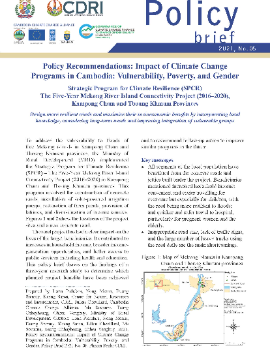SAN Sophany
Former Director
SAN Sophany holds Master’s degrees in Gender and Development Studies from the Asian Institute of Technology (AIT) in Thailand, and in Education Administration and Leadership from Pannasastra University of Cambodia (PUC). At CDRI, she leads the project, (1) Barriers and Pathways to Women’s Political Participation in Myanmar: Gender Equality and Decentralization in Myanmar-Comparisons with Cambodia; (2) Local Leadership in Cambodia. She was also a part of the Cambodian Gender and Inclusive Development Analysis project; the Refasion project research on Social Protection and the Gendered impact of COVID-19 in Cambodia. With an extensive experience of more than 5 years in managing research projects, she was a co-chapter writer on women’s rights and contributions to the enjoyment of the human right to a healthy environment of the project "Prosperous and green in the Anthropocene: The human right to a healthy environment in Southeast Asia". she also has been conducted baseline and endline study related to ISAF, women’s enterprise development, the work-life balance of female garment workers, the right to adequate housing of women migrant workers. She has expertise in conducting both research method includes developing questionnaire tools for survey, and qualitative research with key informants including National Government, INGOS, and Local NGOs.
Email : sophanysan@cdri.org.kh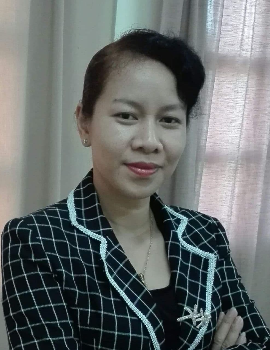
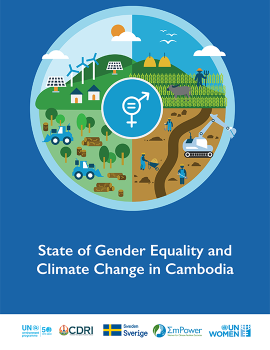
The purpose of this assessment report on gender equality and climate change is to analyse the gendered impacts of climate change and to raise awareness about the benefits of, and need for gender-responsive climate action. The study has two main objectives: i) to strengthen country-driven processes by presenting more evidence of the links betwe...
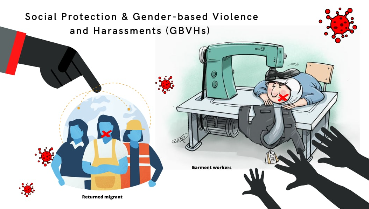
Globally, the COVID-19 pandemic increased gender-based violence and harassment in the world of work. Even prior to the pandemic, in the garment sector, garment workers, particularly women garment workers, often experienced: forced overtime, threats of violence and verbal and mental abuses, gender discrimination, and limiting freedoms of association...
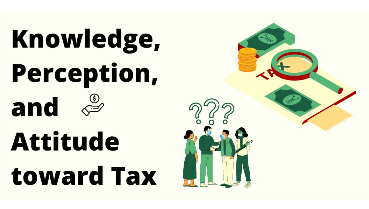
Cambodia is a developing country where tax revenue is the fundamental source for government revenues. Tax receipts account for about 67.45 percent of total government income (Ministry of Economy and Finance, 2016). The Ministry of Economy and Finance (2014) states that a revenue-mobilization policy is necessary to transform the country from its cur...
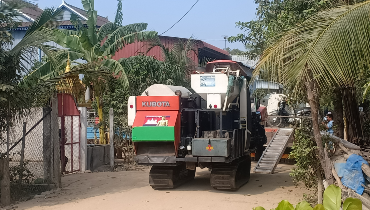
Financial markets have recently transformed agrarian landscapes throughout Southeast Asia. Smallholder farmers have gained access to formal financial technologies—such as microcredit, insurance, and mobile banking—to capitalize agricultural production and manage their risks. Proponents of finance argue that these new markets will promote economic g...
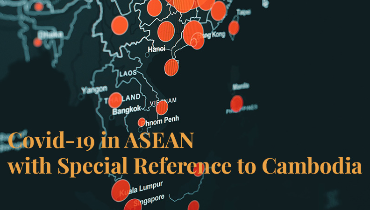
Cambodia has so far had limited direct experience of the pandemic, however, indirect effects have been several – disruption of migration, investment, tourism, garments and regional agricultural and other exports. In 2021 there have also been some movement restrictions. This situation makes Cambodia a natural experiment in the how the impacts of suc...

Ministry of Women’s Affairs of Cambodia (MoWA) envisions a society in which women and men enjoy equal rights, where women fully participate in social life at the same time that they do not face discrimination in the public neither the domestic sphere. MoWA is mandated to promote gender equality and women's empowerment within an institutional and so...
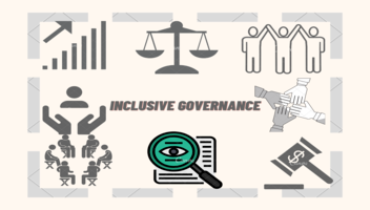
Over the past two decades, Cambodia has made significant economic progress, with growth being over 7%. The opportunity exists to underpin this progress towards an inclusive and equitable social contract by strengthening social capital, expanding trust among social groups and between groups and the government, establishing and improving access to pa...
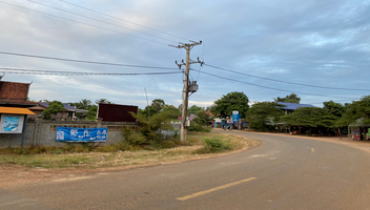
Since the end of the war, Cambodia has undergone significant social, economic and demographic change as well as governance reform. In 2002, the first local elections of the post-war era elected local government councils. This study repeats an ethnographic study previously conducted by CDRI in some Cambodian communes in 2007, to establish how leader...
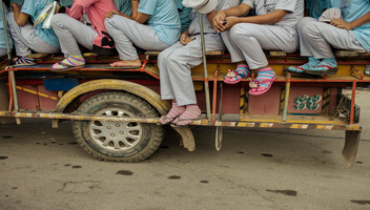
COVID-19 pandemic has caused severe disruption of the global garment industry such as manufacturing shutdowns, consumer lockdowns, order cancellation of suppliers, and lack of raw materials. However, social protection in Cambodia remains limited coverage to address livelihoods as a result of factory suspension and layoffs.This study focuses on unde...
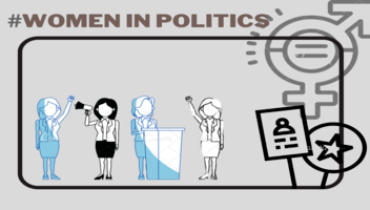
Women’s participation in politics has been an issue that remains to be addressed in order to achieve gender equality around the world. In Asia, while important progress has been made towards gender equality and where women are key and welcomed participants in the market, the political realm remain stubbornly male dominated and only 19.7 percent of...
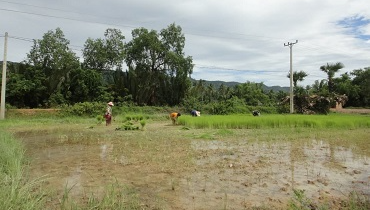
Under technical and financial support of UNEP and UNWOMEN, the assessment report is “a tool” to raise awareness about the benefits, advantages and need for gender-responsive climate action, analyse gendered impacts of climate change, and suggest ways to enhance and mainstream gender equality into climate-relevant sectoral policies. Besides, th...

